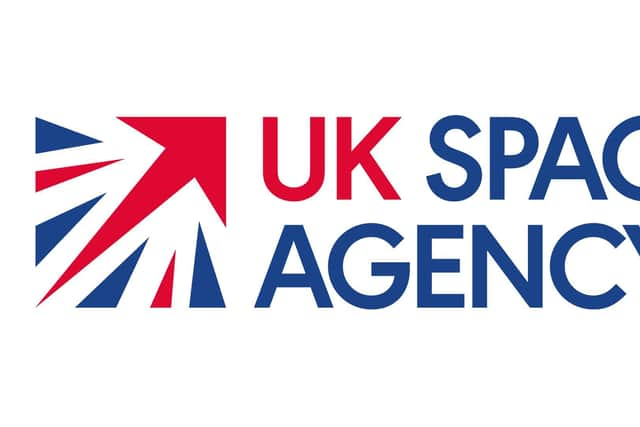UK Space Agency: all-UK mission will 'push boundaries of human knowledge'
and live on Freeview channel 276
An all-UK space mission will push the “boundaries of human knowledge” by conducting research that cannot be done on Earth, the UK Space Agency (UKSA) chief has said after the agency announced it had signed a deal with US-based company Axiom Space.
The mission will see UK astronauts launched into space, spending up to two weeks in orbit to carry out scientific research. UKSA chief executive Paul Bate said although there are not yet any dates for the mission, the two organisations are thinking about how it can be conducted as soon as is “practical and sensible”.


Advertisement
Hide AdAdvertisement
Hide AdHe told the PA news agency: “The signing of the MOU – the memorandum of understanding – that allows us to properly explore, to properly plan, the science, the outreach, the skills of the crew that will fly. There are lots of things to work through, but I can tell you that we are doing it at a pace.”
Working with commercial partners meant different ways of approaching the challenge of conducting research in space, he said and explained: “If you learn together, and we’re all clear on what our boundaries are and what risk we’re willing to bear… if it’s research risk, so that we can really push the frontiers of knowledge, then let’s bring the best of what everybody has. Space is a team sport, that is what it’s actually about at the end of the day – we’re pushing the boundaries of human knowledge.”
Dr Peggy Whitson, former Nasa astronaut, and director of human space flight at Axiom, visited the UK to meet potential sponsors and raise awareness about the opportunities for research and outreach activities in microgravity.
When talking about the kind of research that could be conducted on any future mission, she told PA: “There’s a lot of scientific research that points to the fact that there may be some accelerated ageing in space, and so we can use it as a model system for a lot of things. Also, for instance, cancer cells tend to grow more like they do on the ground, but are maybe even more accelerated – they grow more like they do in your body. So it provides a model system where we can test drugs and test techniques to try and detect or minimise things like cancer, or, for instance, the bone loss that we see in space.”
Advertisement
Hide AdAdvertisement
Hide AdShe added: “It’s a great opportunity to test new drugs or to test new methods to try and minimise those effects. And that obviously benefits all of us here on Earth if we better understand that process.”
Dr Whitson is America’s most experienced astronaut, and flew on three Nasa long-duration space flights and Axiom Mission 2 (Ax-2), accumulating 675 days in space, more than any other American astronaut or woman astronaut in the world. She was also the first female commander of the International Space Station (ISS), and has experience of the unique research environment in space.
She explained: “Learning how to work in space is a skill. Not having gravity can sometimes be a detriment when you’re trying to organise your tools and your items for your experiment.
“But we’ve learned a lot of things over the years on how to best do that. And that’s one of the things our expertise can offer to new researchers who want to try and develop scientific investigations.”
Advertisement
Hide AdAdvertisement
Hide AdUK universities, research institutions and industry are being called on to share their ideas for experiments and technology demonstrators which could be conducted during a two-week period.
Mr Bate said: “Astronauts are inspirational, but you don’t have to be an astronaut to work in space. It is a team of thousands or tens of thousands that make space a reality for the humans that then do the incredible things on that space station and beyond.”
The UKSA is working with Axiom – which provides full-service orbital missions, conducting end-to-end crewed missions to the ISS – on plans for a commercial mission with the full support of the European Space Agency.
Comment Guidelines
National World encourages reader discussion on our stories. User feedback, insights and back-and-forth exchanges add a rich layer of context to reporting. Please review our Community Guidelines before commenting.
